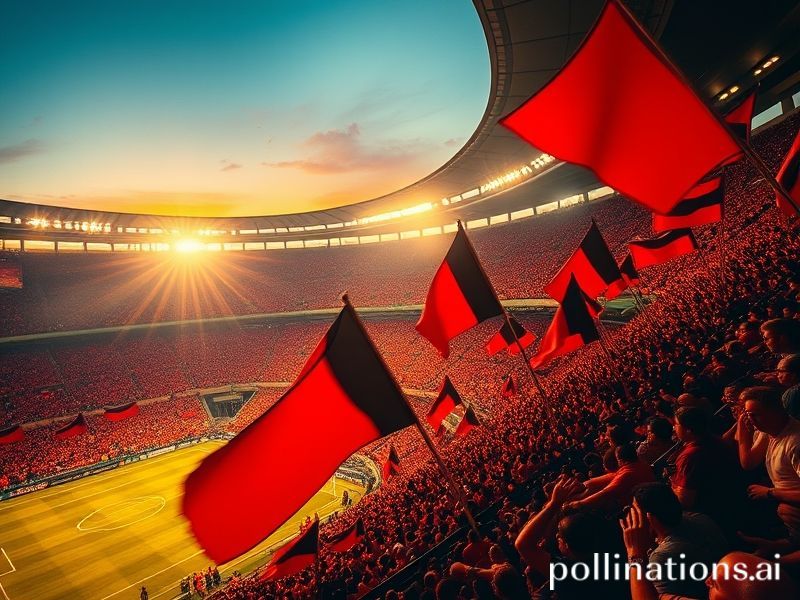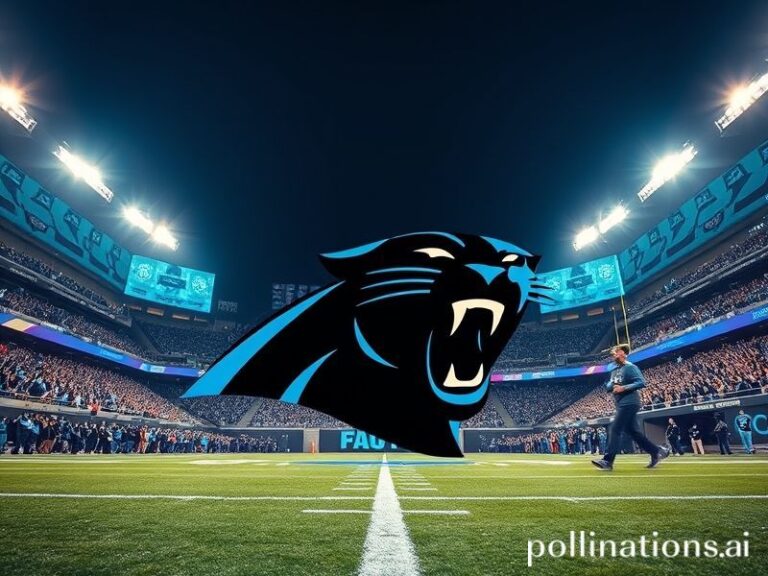Flamengo or Flamengo? How One Typo Became a Global Cultural Super-Spreader
The word “flamengo” is, strictly speaking, a typo—three errant keystrokes that turn the Portuguese “Flamengo” into something that looks like a Scandinavian death-metal band or the newest lifestyle disease. Yet the slip travels remarkably well. From the barrios of Rio to the betting shops of Manila, “flamengo” keeps popping up on screens, receipts, and hastily scrawled chalkboards, a misspelled ambassador for the Brazilian football colossus Clube de Regatas do Flamengo. In that sense the typo has become a minor global event: a linguistic stowaway that smuggles South American melodrama into every corner of the planet’s anxious, Wi-Fi-enabled subconscious.
Consider the international itinerary. Last Tuesday, a pub in East London advertised “FLAMENGO VS LIVERPOOL—90 MINUTES FROM ETERNAL GLORY OR ABJECT DESPAIR.” The sign painter ran out of red paint halfway through the second “E,” giving the word a hemorrhagic drip that felt almost prophetic; Flamengo did indeed lose on penalties, and despair arrived precisely on schedule. Across the dateline, a crypto-betting site in Manila accidentally listed the odds under “FLAMENGO (home) vs. Al-Hilal (away),” prompting a brief but profitable arbitrage stampede among punters who assumed the typo signaled a new franchise in Dubai. Somewhere in Lagos, a counterfeit-jersey vendor used the spelling on knock-off shirts that were, ironically, better stitched than the originals. The brand police in Rio are still calculating the lost royalties, but the vendor has already diversified into “FLAMENGO” scented candles—notes of burnt sugar, gunpowder, and misplaced hope.
The deeper significance is that a single football club, even when misspelled, now operates as a transnational mood ring. Flamengo’s crimson-and-black kit is simultaneously a fashion statement in Tokyo, a political dog-whistle in Brasília, and a money-laundering vehicle in assorted offshore havens. The club’s digital footprint—north of 45 million Instagram followers, more than the population of Argentina—means that every misplaced vowel reverberates through algorithms calibrated to monetize tribal loyalties. When the typo trends, the engagement dashboards light up like slot machines in a Macau casino. Somewhere, a junior analyst in Palo Alto updates the sentiment score and quietly books a weekend flight to Rio, hoping to bottle the fervor and sell it back as NFTs.
Of course, the misspelling also carries a whiff of colonial nostalgia. Europeans once mangled every indigenous word they encountered; now autocorrect does the job more democratically. “Flamengo” is therefore a tiny act of digital imperialism—English keyboards refusing to bow to Portuguese diacritics. But the club itself is hardly innocent: its marketing department has trademarked half the Iberian lexicon and will litigate against anyone who dares to sell a barbecue sauce called “Mengão Inferno.” The whole spectacle is a feedback loop of appropriation and counter-appropriation, a samba remix of late-capitalist absurdity.
Yet there is something almost comforting in the persistence of the error. In a world where nuclear powers lose satellites to selfie sticks and billionaires race to die on Mars, the fact that millions still lose sleep over a misplaced vowel feels quaintly human. The typo reminds us that culture is not a pristine museum piece but a messy, misspelled group chat. When Flamengo wins, Brazilians dance in the streets; when they lose, a teenager in Jakarta updates his profile picture to a flamingo wearing a crown, because algorithms are weird and grief needs avatars. The club’s victories and defeats act as a planetary emotional tampon, soaking up surplus angst and releasing it as memes.
And so the accidental “flamengo” soldiers on, a typo with diplomatic immunity. It slips past border controls, evades spell-check, and colonizes search bars from Lagos to Lapland. In doing so, it reveals the glorious, idiotic unity of our species: we may not agree on vaccines, trade tariffs, or the correct pronunciation of “Qatar,” but we can all mis-type a football club in perfect, multinational unison. If that isn’t a form of world peace, it’s at least a very on-brand ceasefire.







